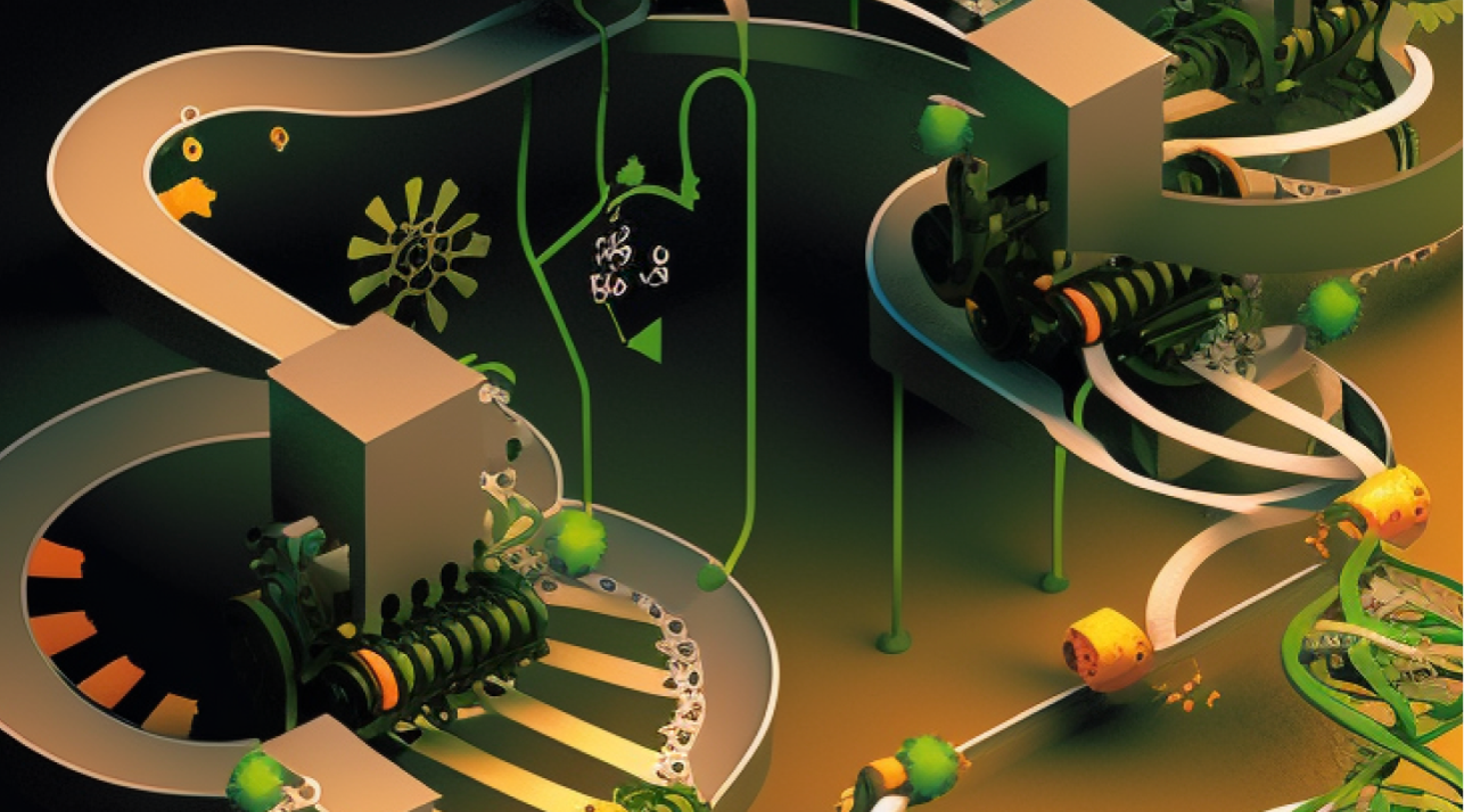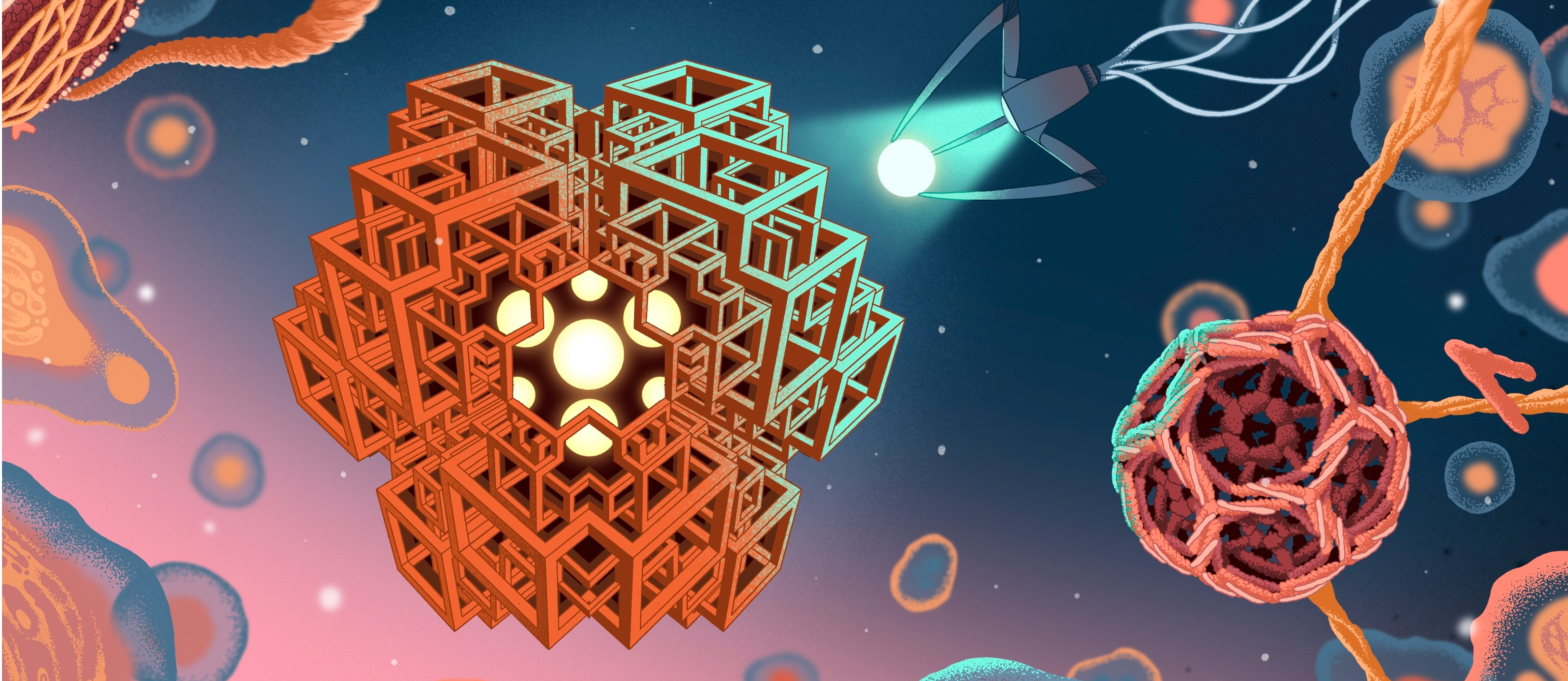Programs

Our “core gameplay loop” revolves around multi-year programs run by program leads with wide-ranging authority to coordinate several projects towards a single vision.
Programs aim to unlock technologies that are potentially big if true. However, these technologies are very much still research, not products.
The goal of our programs is to make a technology sufficiently unspeculative to the point where it can continue in other institutions – whether that’s as a startup, a government research program, or part of a larger company. Our job is to turn the impossible into the inevitable.
Programs
Brains Coordinated Research Accelerator
Brains is a 15-week, part-time accelerator to provide the skills and opportunities for ambitious individuals to execute on research visions with potentially huge impact that aren’t a good fit for a company but are too big for a single academic lab.
Think YCombinator for coordinated research programs.

Carbon to Chemicals
Led By: Quentin Dudley
By pulling enzymes, substrates, and cofactors out of organisms and into a bioreactor, we can take advantage of metabolic pathways to sustainably convert harvested sugar or even carbon dioxide from the atmosphere into useful molecules quickly and efficiently instead of deriving them from petroleum.This program aims to expand the scale and scope of cell-free manufacturing, both of which are currently limited.

Impossible Fibers
Led By: Tim McGee
Natural materials, like spider silk, dramatically outperform synthetic materials in multiple dimensions.
It might be possible to build systems that use the same mechanisms as biology to build high performance fibers and materials that are currently unachievable while simultaneously making existing processes more sustainable.

Nanomodular Electronics
Led By: Michael Filler
Nanomodular electronics is creating a new process for manufacturing microelectronics that are customizable down to the transistor, use a plethora of materials, and can be made on-demand without etching silicon or requiring a massive, expensive facility. By creating tiny, modular components separately from laying them down and wiring them together, we could make custom microelectronics as easily as printing this document.

Molecular Additive Manufacturing
Led By: Chris Wintersinger
Molecular additive manufacturing is creating heterogeneous materials whose structures can be specified down to nanoscale building blocks, potentially enabling us to engineer structures we depend on biology for today. By templating a precise pattern of covalently bonded proteins, polymers, and inorganic molecules, we could create powerful catalysts, membranes to easily filter water, and take the first steps on the path towards atomically precise manufacturing.

ARIA Collaboration
Spectech is creating a soon-to-be-public library of resources on how to run coordinated research programs, in collaboration with the UK’s ARIA (Advanced Research + Invention Agency). We believe that it’s possible to make this career more accessible by codifying the critical skills and mindsets that go into leading these programs. We are also creating a complementary 1:1 mentoring program for ARIA’s programme directors.

Programs

Brains Coordinated Research Accelerator
Brains is a 15-week, part-time accelerator to provide the skills and opportunities for ambitious individuals to execute on research visions with potentially huge impact that aren’t a good fit for a company but are too big for a single academic lab.
Think YCombinator for coordinated research programs.

Carbon to Chemicals
Led By: Quentin Dudley
By pulling enzymes, substrates, and cofactors out of organisms and into a bioreactor, we can take advantage of metabolic pathways to sustainably convert harvested sugar or even carbon dioxide from the atmosphere into useful molecules quickly and efficiently instead of deriving them from petroleum.This program aims to expand the scale and scope of cell-free manufacturing, both of which are currently limited.

Impossible Fibers
Led By: Tim McGee
Natural materials, like spider silk, dramatically outperform synthetic materials in multiple dimensions.
It might be possible to build systems that use the same mechanisms as biology to build high performance fibers and materials that are currently unachievable while simultaneously making existing processes more sustainable.

Nanomodular Electronics
Led By: Michael Filler
Nanomodular electronics is creating a new process for manufacturing microelectronics that are customizable down to the transistor, use a plethora of materials, and can be made on-demand without etching silicon or requiring a massive, expensive facility. By creating tiny, modular components separately from laying them down and wiring them together, we could make custom microelectronics as easily as printing this document.

Molecular Additive Manufacturing
Led By: Chris Wintersinger
Molecular additive manufacturing is creating heterogeneous materials whose structures can be specified down to nanoscale building blocks, potentially enabling us to engineer structures we depend on biology for today. By templating a precise pattern of covalently bonded proteins, polymers, and inorganic molecules, we could create powerful catalysts, membranes to easily filter water, and take the first steps on the path towards atomically precise manufacturing.

ARIA Collaboration
Spectech is creating a soon-to-be-public library of resources on how to run coordinated research programs, in collaboration with the UK’s ARIA (Advanced Research + Invention Agency). We believe that it’s possible to make this career more accessible by codifying the critical skills and mindsets that go into leading these programs. We are also creating a complementary 1:1 mentoring program for ARIA’s programme directors.
Future Programs
Several other programs are in the works
Sign up to our mailing list below to stay in the loop and get the latest updates.
